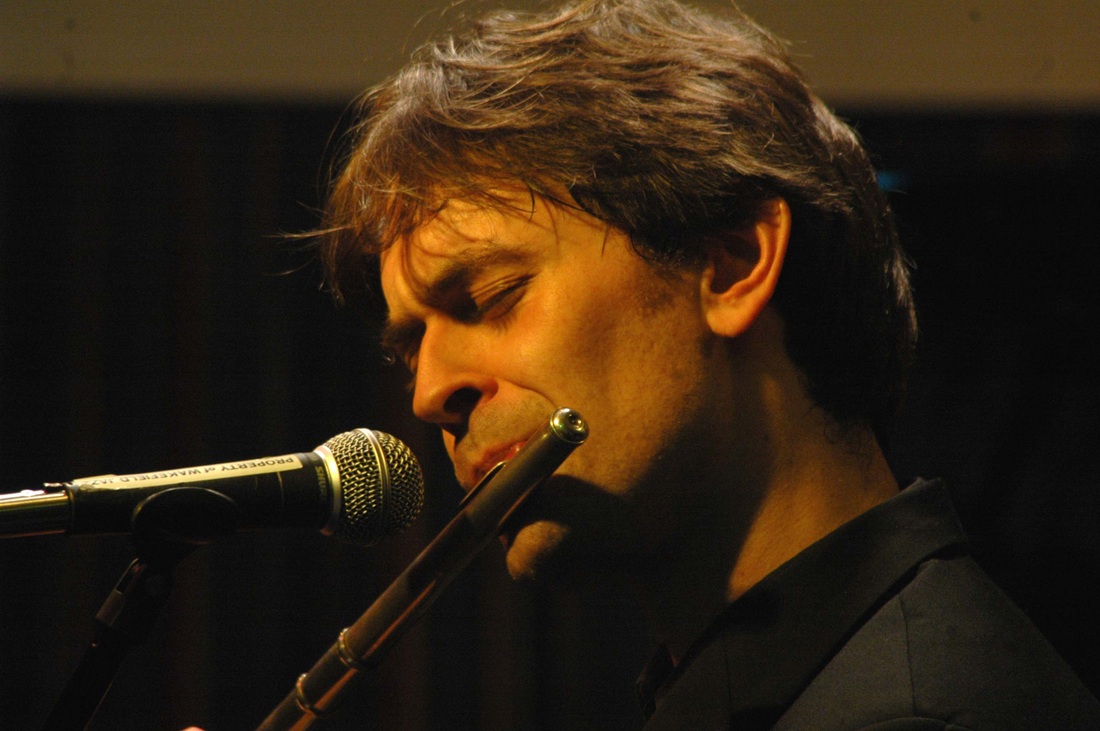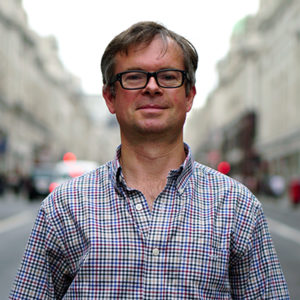Gareth Lockrane Interview

You’re performing at Jazz Hastings on Tuesday 11th November, performing the music of the late Bheki Mseleku. What memories do you have of playing with him?
“I have many great memories of our gigs together and long, intensive duo rehearsals. He would arrive at my house sometimes having ‘dreamt a new tune’ and this would be literally the first time he'd ever played it! He didn't write his tunes down, so he would dictate them to me by ear and I would write them down later for the other guys in the band. He was extraordinary. His intensity and the emotional breadth in his composing and piano playing were like nothing else I'd ever experienced. He was a childhood hero of mine when his albums Celebration and Timelessness were released in the Nineties so I knew his music very well but nothing could prepare me for the level of engagement and commitment that would come from playing with him.”
What do you like most about his music?
“Bheki's music amassed many influences and genres. In his music you can hear traces of traditional South African music, contemporary classical music and the influence of John Coltrane and McCoy Tyner, Bud Powell, Jaco Pastorius, Herbie Hancock and Chick Corea amongst many others but he always had a unifying individual force that all the great composers in jazz have. He had a god-given gift for accessible melodies with all kinds of crazy rhythmic and harmonic complexity buried underneath the surface; the audience would be singing and dancing along with these great tunes on the gigs whilst the musicians would be sweating it out trying to nail the complex forms of the tunes.”
“And as a pianist he was incredibly proactive, and always playing for the group. A truly orchestral pianist, he utilised the full range and dynamic potential of the instrument; many times he would be trying to ground the sound of the group by playing incredibly softly. When the time came for him to project with a lot of power, the intensity he could draw upon was quite unbelievable to witness and to play with. It really was like playing with one of the greats; he was one of the greats! And very sadly missed. Hastings was something of a retreat for him from the chaos of London, he had a strong support down there from Reg Hendrickse and John Donaldson, we always had great concerts in the jazz club there. For the gig on Tuesday we have a fantastic band playing Bheki's music: Julian Siegel (saxes) Jim Watson (piano) Olly Hayhurst (bass) and Tim Giles (drums) as well as me (flutes).”
The Grooveyard band has been critically acclaimed. Tell us about the group and how that came about.
“That band started about ten years ago as a collaboration with saxophonist Alex Garnett, one of my favourite musicians on the scene today and a kind of saxophone Godfather to many young guys on the London jazz scene. It started out as an unofficial homage to all my favourite soul-jazz musicians of the 60s like Cannonball Adderley, Stanley Turrentine and Eddie Harris. Quite quickly though, it morphed into something else entirely! The influence of those guys was always there but filtered through my own composing which naturally contains a lot of more contemporary influences too. It was a pure hammond organ group (with no bass player) for a long time and we recorded two albums that I'm really proud of called Put The Cat Out and The Strut; more recently I’ve had a slight change of direction with that group and I’ve now called it Grooveyard Unplugged and we have an incredible bass and drums team of Dave Whitford and Tim Giles and our keyboard player, Ross Stanley, has a much more flexible role than he used to when he was manning the bass pedals the whole time! There'll be more from that new lineup in the future.”
What other projects are you working on at the moment?
“I have my 19-piece big band which for me is a natural evolution from my Grooveyard group. I've always loved arranging and composing and get a real kick out of leading and playing with a big band; I've learnt to embrace that fear when you hand out an arrangement for the first time! We do all my tunes in the big band and I love hearing great musicians do their thing with my music; I try not to get in the way too much. But I probably do without meaning to. I've long been inspired by many great writers and film composers (I did an MA in film composition after I did my music degree); Bheki, Gil Evans, Thad Jones, Oliver Nelson, Jaco Pastorius, Kenny Wheeler, Basie, Ellington, Mingus, Don Sebesky, Jerry Goldsmith, Jerry Fielding, Bernard Herrmann; all the above and I'm always finding new things to get into to inspire me.”
“As a sideman I really enjoy trying to immerse myself in other people's music and as well as Bheki Mseleku's group I have had great experiences playing and recording in groups led by, amongst others, pianist Kate Williams, guitarist Phil Robson, bassist Laurence Cottle, great singers in many different genres like Michael Kiwanuka, Natalie Williams, Christine Tobin, Anita Wardell, Georgia Mancio and Nia Lynn, and I also get to get to play with the James Taylor Quartet regularly which I love doing. I also play with lots of groups led by younger musicians on the scene like bassist Max Luthert, guitarist Dan Messore and trumpeter Reuben Fowler which keeps me on my toes, these guys are fantastic and have a whole new set of influences which I really enjoy trying to process in my own way. At the moment I'm the middle of a run of gigs as a guest soloist with Tommy Smith's Scottish National Jazz Orchestra playing Laurence Cottle's arrangements of Jaco Pastorius' tunes which has been a fantastic experience.”
Tell us about your approach to teaching and what advice you give to beginner jazz flautists.
“I do quite a bit of teaching at all the main music colleges in London, particularly at the Royal Academy of Music (where I did my degree) and at the Trinity and Guildhall schools, and am constantly inspired by where these incredible young musicians are going with the music. I just try and give them a good grounding in all the skills they need; developing their styles and deepening their influences, getting them to listen to the rest of the band when they are playing (sounds obvious I know), playing by ear and internalising melodies without written music, transcribing solos, developing a strong sense of the tradition of the music and exploring many different styles and composers, developing strong sight reading skills, encouraging them to write and arrange their own music, deepening their rhythmic feel and developing their harmonic knowledge. Etc etc!”
“For beginner jazz flautists I would say just go for it, don't let the fact that the flute is underused in jazz put you off. It takes a bit of blind faith I must admit. Imagine you're playing a guitar or saxophone. Do your instrumental homework with classical studies, develop a strong sound across the range and a strong time feel. Try the piccolo, alto and bass flutes too, there are some incredible instrumental colours available with those instruments. My favourite flautists in jazz are Joe Farrell, Roland Kirk, Hubert Laws, Eddie Parker, Frank Wess, Paul Horn, James Clay, Anders Bostrom and Jeremy Steig; learn solos from those guys and branch out to other instruments, that's what I did. I'm sure there are a few great flute players I've missed out but that's a good start!”
This interview appeared in issue 32 of The Sussex Jazz Mag, available here.
Gareth Lockrane performs the music of Bheki Mseleku at JazzHastings on Tuesday 11th November.
For more on Gareth Lockrane: www.garethlockrane.com



